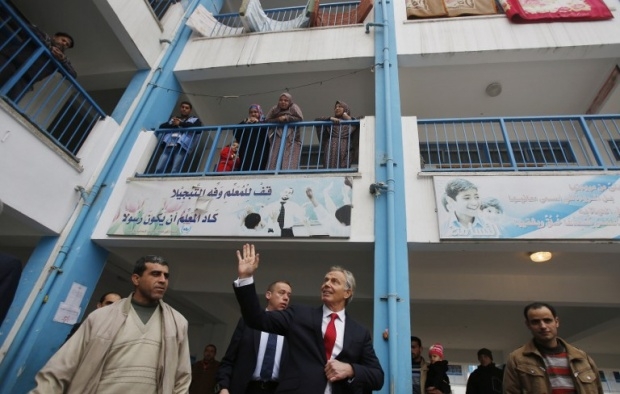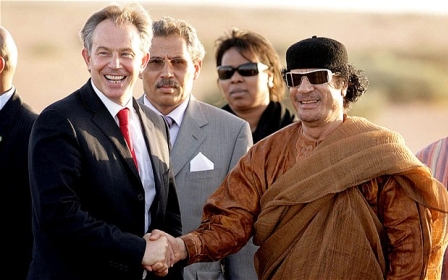Tony Blair resigns as Middle East peace envoy

Tony Blair has resigned as an envoy for the Middle East Quartet peace negotiators, after working in that role for eight years.
The Quarter, comprised of the UN, the EU, Russia and the United States, appointed Blair to the post in 2007 with the goal of helping to develop the Palestinian economy and institutions.
According to the Associated Press, officials in Jerusalem said that the former British prime minister submitted a letter to Ban Ki-moon, the United Nations secretary-general, to confirm his resignation. The officials said that Blair will officially step down next month.
In a separate role, Blair also acts as an adviser to a few foreign governments, which has led to vocal concerns about a conflict of interest between his business interests and his role in Middle East peace negotiations.
Last year, a group of former British ambassadors joined a campaign calling for Blair to be removed from his role as Middle East envoy, citing their objections to the possible clash with his business interests and attempts to excuse himself of responsibility for the repercussions of the US-led 2003 invasion of Iraq.
Despite several drives to relaunch the peace process between Palestine and Israel since 2007, there has been little change on the ground.
In the last report issued by Blair's office within the Quartet, the future for Middle East peace talks were described as dismal.
Regarding the "stalled peace process," Blair's office said that: "Over a year on from the breakdown in talks between Israel and the Palestinians, there is still no tangible political horizon in sight."
In March, Blair had hinted that he was preparing to stand down in a speech questioning the "efficacy" of democracy in the region.
The former prime minister will continue to work with "the US, the EU and others, without any formal role" to support efforts to bring about a two-state solution and will "remain active on the issues and in the region," the source said.
Middle East Eye propose une couverture et une analyse indépendantes et incomparables du Moyen-Orient, de l’Afrique du Nord et d’autres régions du monde. Pour en savoir plus sur la reprise de ce contenu et les frais qui s’appliquent, veuillez remplir ce formulaire [en anglais]. Pour en savoir plus sur MEE, cliquez ici [en anglais].




